- Home
- Helen Forrester
Thursday's Child Page 2
Thursday's Child Read online
Page 2
I had just seen a Duchess slip quietly into the auditorium, chivvied from behind by two students who were afraid of being late, when a voice behind me gushed: ‘My deah, where have you been all these years?’
The voice was familiar, and I turned round quickly, to face a middle-aged woman who was extending a black-gloved hand to me.
‘Bessie,’ I cried, overjoyed at meeting someone I had known before the war. The last time I had seen Bessie she had been in khaki uniform – a sort of female brass hat – but there was nothing of that about her now. Her black suit and frilly, red hat made her completely feminine.
‘My deah, you are just the woman for whom I’ve been looking. Can you dance?’
‘Yes,’ I said blankly.
James came up to us, triumphantly bearing his box of chocolates, and was introduced. The foyer bell rang, and Bessie said hastily: ‘Come and see me, my deah, tomorrow evening at 42 Belfrey Street – the McShane Club. Come at seven.’ She looked about anxiously. ‘Please excuse me – I must find my party.’
She waved one plump hand vaguely in the direction of the front door and tripped across the hall, her high heels clicking merrily on the marble floor, and to my amazement, joined a party of Negroes. She greeted them gaily and vanished with them into the auditorium.
James’s eyebrows lifted, as he asked: ‘Who are they?’
‘No idea,’ I said.
‘Have a chocolate,’ said James, tearing off wrappings.
James had invited a young married couple to join us, and as soon as they arrived we went in to see the play. It was a good play about the escape of a prisoner of war from a German stalag – but my mind was on Bessie.
Bessie Forbes used to live in a flat near to us. Her husband had been a lieutenant in the Regular Army and had been at Wetherport Barracks for nearly a year before the war broke out. He had been sent to Norway and had been posted as Missing. Bessie waited for further news but none came, and, as she had no children, she enlisted in the Army Territorial Service. I knew she had done very well in the Service, but presumably she had now taken her discharge. I wondered if she had married again. And what was she doing in the company of Negroes? Negroes were an everyday part of my working life – but that was unusual. It was not reasonable to suppose that a woman of Bessie’s station in society would be well acquainted with any – the colour bar still functioned in England quite effectively in respect of Negroes.
At the end of the second interval, as the audience was surging back to its seats, I was tossed against Bessie, and she smiled at me.
‘Who are you with?’ I whispered, nearly dead with curiosity.
‘Nigerian chieftains,’ she said. ‘See you tomorrow,’ and she was swept away from me.
The mystery was beyond me, so I ate James’s chocolates and tried to concentrate on the play.
James and I walked leisurely home together. The night was clear and there was a sweet smell of rotting leaves in the park. We did not talk much on the way, knowing each other well enough not to have to make conversation. He lingered at our gate and I asked him in.
‘No, I – I won’t come in tonight,’ he said.
He made no move to depart, however, and leaned awkwardly against the gate pillar, his fingers drumming on its dirty, granite sides.
He said abruptly: ‘Peggie, will you marry me?’
My mind was on Nigerian chieftains, but the answer came without hesitation, and I surprised myself with the certainty of it.
‘No, Jamie,’ I said gently, ‘I can’t.’
James stopped drumming on the gate pillar and gripped it hard.
‘Why not, Peggie? Ah love thee.’
‘I know, dear, and I’m sorry.’ I paused, and looked at him in the light of the street lamp. ‘You are so like Barney, Jamie, that I would love you because of the likeness and not because you are you. It would not be fair to you.’
He stood there, silently biting his lower lip, just as Barney used to when puzzled.
‘Ah might’ve guessed it,’ he said at length. ‘Are you sure, Pegs?’ The light-blue eyes gleamed suddenly in the poor light and there was pain in them.
My resolve faltered; James would make a good husband, I knew. He had a depth of character which Barney had lacked. I looked up at him again. The light was playing tricks with him and it seemed as if Barney was standing there, instead of James; like a tormenting dream, I thought bitterly.
‘I can’t, Jamie. You’re the finest man I know – but I can’t marry you – I just can’t.’
‘Dawn’t fret yourself, luv. Ah do understand.’ He lifted my chin with one hand, so that the lamplight fell upon my face. His lips were curved with pity. ‘Just remember, that ah’m always around if you want me,’ he said softly. His arm dropped to his side and he turned to go. ‘Good night, Peggie, luv.’
‘Good night, Jamie – I’m truly sorry.’
He looked back at me as I stood by the gate: ‘Ah told thee – dawn’t fret,’ he called as he limped into the darkness.
I knew I had hurt badly someone who loved me very much, and as I climbed the front steps I reproached myself mercilessly for being so foolish as to see so much of him when I had no intention of marrying him.
I let myself in. Everybody was in bed, and only the tick of the grandfather clock broke the quietness. On the bottom step of the staircase lay Tomkins, our cat, and I sat down by him and scratched his ears. He stood up, stretched, and leaped up on to my shoulder, to rub himself against my neck. The house seemed so peaceful, so normal, just as it had been since I was a little girl. Only the little girl had grown and changed into a disheartened woman.
I burst into tears, and Tomkins fled up the stairs.
A door opened and Angela leaned over the banisters.
‘What’s the matter, Peg?’
‘Nothing much,’ I whispered, ‘I am all right,’ and I picked up my handbag and went slowly up the stairs.
Angela was standing in a shaft of light from her bedroom, fairylike in a nylon nightgown, her fair hair tumbling about her shoulders. She looked tired, however, as if she had not slept well for a long time.
I smiled wanly at her and she followed me into my bedroom.
‘You look tired,’ I said.
‘Me? Oh, I am blooming. I never did sleep much.’
‘Go to bed now – there’s nothing the matter with me – I’m just grizzling – it was nice of you to come, though.’ I caught her by the shoulders and kissed her impulsively. ‘You’re a darling, Angela,’ I said.
‘Am I?’ Her lips were tight across her teeth in a wry smile.
‘Of course you are. Now go to bed and don’t worry about me.’
A look of weariness crossed her face. She seemed suddenly much older.
‘Sure you’re all right? No more tears?’
‘No.’
‘I’ll go then. Nighty-night.’ And she trailed across the passage to her own room and quietly shut the door.
I switched on the electric fire, undressed in front of it and then went to the dressing-table to take the pins from my hair. Although I was shivering a little from the clammy coldness of the big room, I paused to look at the shadowy reflection in the mirror.
My hair fell thick and brown to my waist. I lacked the courage to bleach it golden as Angela did. Large hazel eyes peered anxiously between the tousled locks.
‘You are abominably average,’ I addressed myself. ‘Stock size figure and long legs included.’ I peered closer. ‘What on earth can a man see in that?’
Tomkins meowed at my feet and I bent to stroke him.
‘Tomkins,’ I said, ‘if I was half as beautiful as Angela, I would have married a king – and he would not have had to be killed,’ I added sharply.
Why, I wondered idly, as I got into bed, had Angela not married? She must meet many scientists in the course of her work – but science is not a lucrative profession, I reminded myself, and Angela is distinctively expensive-looking.
Tomkins heaved himself on to the bed
and settled down in the curve of my knees.
‘Tomkins,’ I said, ‘you’d better have some kittens to keep Angela and me company when we grow old – because it doesn’t look as if either of us is destined for matrimony.’
I turned over and Tomkins meowed protestingly, as if to say that he would if he could.
‘Well, find yourself a pretty lady pussy,’ I said drowsily, and fell asleep.
CHAPTER THREE
I was still puzzling about Bessie and the Negroes as I walked swiftly through the badly-lit streets, to keep my appointment at 42 Belfrey Street. I felt a subdued excitement at the thought of seeing her again – after all, Bessie belonged to that part of my life which had been sunlit and full of hope, when the war was still a long way off in places like Poland and Norway.
I had been unable to remember what kind of a club the McShane was, but the moment I walked through its swing doors and a gust of conversation swept round me, I wondered how I could have forgotten.
Angus McShane, a native of Wetherport and a great believer in the excellence of British culture, had at his death asked that his considerable fortune be used to build a club for the purpose of propagating British ideas amongst foreign visitors to Britain.
The City Council, faced with all the difficulties inherent in ruling a port full of foreigners of every nationality, had supported the idea, and the result was a suite of pleasantly furnished rooms in the middle of the city, where foreign visitors and students could entertain their friends and also make friends with English people. Dances were held; English was taught; a canteen dispensed English food – and confirmed the opinion of its customers, that the British were the world’s worst cooks; a library held an assortment of donated books ranging from classics to the latest Ernest Hemingway and the newest magazines; and the lounge into which I walked that autumn evening seemed to contain a representative from every country in the world – and they were nearly all men.
Shyness swept over me and I hesitated, while the doors behind me made a steady plopping sound as they swung back and forth. Four men in American-cut suits stood near me. They were coffee-skinned, and I could feel their eyes looking me over. Their gaze was not insolent and they seemed to approve of me, for they sighed softly as I passed. Two Negroes sitting near bowed their heads self-consciously over a magazine as my skirt brushed the small table in front of them. They made me feel thoroughly womanly, and I enjoyed the change from being Miss Margaret Delaney, the lady from the Welfare.
A white-haired lady was sitting by one of the two fires that blazed in the room, and she was playing chess with a young Chinese. As I looked round, she cried, ‘Checkmate,’ triumphantly, and her opponent’s eyes vanished into slits as he laughed.
‘Excellent play, most excellent,’ he said.
The lady looked up and saw me and I went to her, and asked where Mrs Forbes could be found.
‘She is probably in her office on the floor above.’ The voice was quiet and cultured.
The Chinese bowed slightly: ‘Permit me to take the lady up,’ he said.
His opponent smiled graciously and said that Dr Wu would be pleased to direct me.
Dr Wu rose and bowed to me: ‘Come this way,’ he said.
He led me out of the lounge and up a flight of stairs to a series of offices.
‘This is your first visit here?’ he inquired, his eyes twinkling behind rimless spectacles and his hands making neat, small gestures to guide me along the passage.
‘Yes, it is.’
‘I trust that we may have the pleasure of seeing you here again,’ he said, as he knocked at the door. He bowed again and left me, as Bessie called, ‘Come in.’
‘My deah,’ said Bessie, ‘I’m delighted to see you. Sit down and have a cigarette.’
Bessie, out of uniform, had more charm than most women. That evening she was wearing a pink cardigan that gave colour to her naturally pale complexion. Her dark hair was brushed up in a Pompadour style. As she lit my cigarette I tried to imagine her drilling on a parade ground, but failed hopelessly. The determination and discipline which had lain under her uniform was still with her, however, as I was soon to find out.
‘Bessie, what are you doing here?’
‘I’m the Entertainment Secretary – it’s my job to see that visitors here enjoy themselves.’
I nodded. That explained the Nigerian chieftains at the theatre.
‘Do you like it?’
‘Rather. I meet anybody who is anybody – and no two days are alike.’
‘What have you in mind for me to do?’
‘I’m starting a dancing class – very good teacher, but not enough partners. If you are free, I wondered if you would volunteer to come along on Thursday evenings and act as a partner. I can assure you that there are less amusing ways of spending an evening.’
‘But women are two a penny in this town, Bessie. Why pick on a rather dull person like me?’
‘Two-a-penny women are not required in this establishment,’ said Bessie. ‘Every woman crossing the threshold of this club has to be vouched for personally by a member of the staff or by some other responsible person. Each member has a pass which she must show to the commissionaire at the door.’
‘No commissionaire was there when I came in.’
‘Oh,’ said Bessie, and seized the telephone. Her conversation was brief and frigid. The commissionaire never again left his post without being relieved by his colleague. After Bessie had dealt with him, I think he would have stuck there like the guard at the gate of Pompeii, even to being engulfed by boiling lava.
Bessie turned back to me.
‘You always struck me as someone whose head was well screwed on, and I badly need helpers like that. I noticed at the theatre that you are still single. Any ideas of matrimony?’
‘No,’ I said, my throat tight.
Bessie looked at my plainly combed, long hair, my tailored suit and my far too sensible, flat-heeled shoes: ‘No, I suppose not,’ she said in a specially kind tone of voice.
I felt angry. I am not beautiful and my work demanded that I should dress very plainly, but Barney, James and Jackie had loved me, so I could not be entirely lacking in charm. Still, the dancing class promised to be a new experience, so I asked her to explain exactly what was entailed by acting as a partner.
Bessie explained about times and lessons, and I agreed to come the following evening. Then a little silence came between us.
Hesitatingly, I asked if she had ever heard what happened to Lieutenant Forbes.
She gave a fluttering sigh: ‘No,’ she said. ‘He was presumed killed.’
‘I’m sorry, Bessie.’
She sighed again and fiddled with the fountain pen on her desk: ‘It’s quite all right, deah,’ she said, ‘I was lucky to have him for as long as I did.’
I saw that it was time to go and I rose. She got up and walked with me downstairs and as far as the swing doors, which the commissionaire opened. She told him that I would be coming on the following day and that I was to be brought straight up to her. Then she shook my hand.
‘You will enjoy it here – meet some new people – have some fun,’ she said.
I murmured that the nicest thing was seeing her again – and I meant it.
When I got home, Father was sitting by the fire reading Gibbon’s Decline and Fall. He rose and kissed me. Our house always smells of polish and flowers, and the outside door is invariably open and welcoming; his warm greeting and the habit he has of pushing forward the most comfortable chair for you, make the shyest visitor feel that his arrival is a pleasure. He has long since lived down the fact that he is ‘in the Income Tax’, and everybody knows him as Mr Delaney who has such a lovely show of daffodils.
‘Where’s Mother?’ I asked, taking off my dark jacket and eyeing it disgustedly.
‘She’s in the kitchen, making chili con carne for your supper.’
‘How good she is,’ I said. I love hot dishes, but as no one else in the family liked them, I did n
ot eat them often, so I kissed Father on his bald patch and wandered hopefully kitchenwards.
The house may be Victorian, but the kitchen is not. Father had the old kitchen ripped out, just before the war began, and Mother worked in an atmosphere reminiscent of the advertisements in American magazines.
Mother was really cooking chili con carne.
‘The butcher gave me some extra meat,’ she explained, ‘and I’ve had the beans for years.’
I sniffed appreciatively and sat on the primrose-coloured table, while I told her about the McShane Club. I also told her ruefully about Bessie’s tone of voice when marriage was mentioned.
Mother looked at me shrewdly from the corners of her eyes. She said: ‘The war lasted too long. Now it is finished, it is time to wear pretty clothes again. You should buy a “new look” dress.’
‘Good heavens, Mother, they are too ultra-fashionable. I’ve never seen anyone in Wetherport wearing one yet.’
‘Don’t be silly,’ said Mother, ‘they are in the shops – I’ve seen them – and you have just the figure for one. You’ve plenty of money – you saved all through the war for –’ she stopped.
‘For my marriage,’ I finished off.
‘Yes, dear,’ said Mother sadly.
It was true. I had three hundred pounds in the bank. I sighed; but when on the following day I had finished a round of visits to foster-parents, I slipped into a dress shop and spent an hour buying a dress and coat, followed by another hour in hat and shoe shops. I wondered if I would ever have the courage to wear my purchases, but it did not take much bullying from Mother to make me put them all on, and, when I arrived at the club, Bessie was full of admiration for my appearance. She ushered me into the room in which the dancing class was being held, with the advice that many of the pupils were Muslims, who had not mixed much with women before, and that I should be careful.
Fifteen male pairs of eyes took in every detail of me. Seven female pairs of eyes smiled with relief.
‘Welcome to the battleground,’ said one young lady.

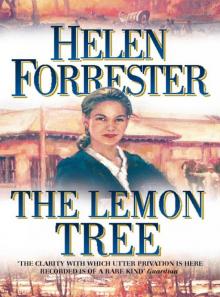 The Lemon Tree
The Lemon Tree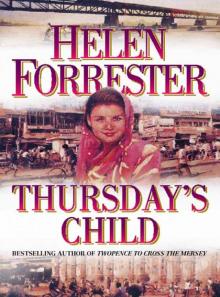 Thursday's Child
Thursday's Child Yes, Mama
Yes, Mama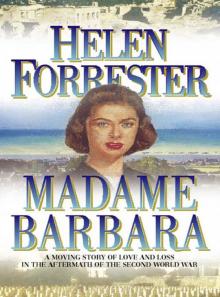 Madame Barbara
Madame Barbara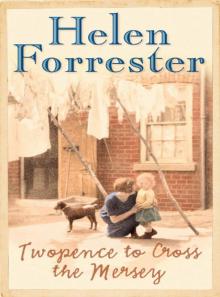 Twopence to Cross the Mersey
Twopence to Cross the Mersey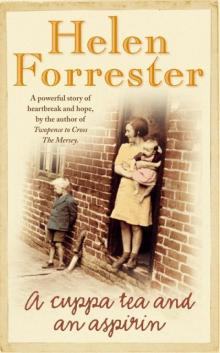 A Cuppa Tea and an Aspirin
A Cuppa Tea and an Aspirin The Moneylenders of Shahpur
The Moneylenders of Shahpur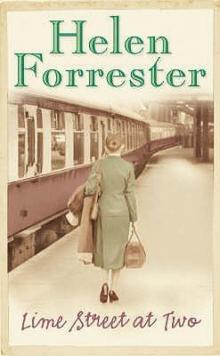 Lime Street at Two
Lime Street at Two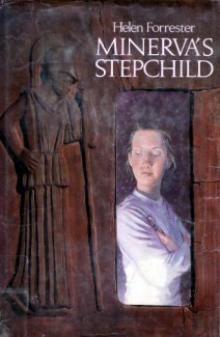 Minerva's Stepchild
Minerva's Stepchild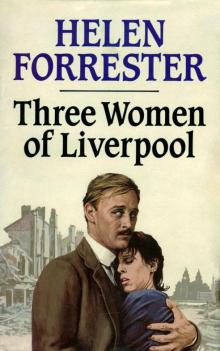 Three Women of Liverpool
Three Women of Liverpool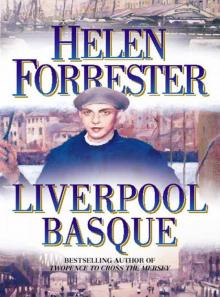 The Liverpool Basque
The Liverpool Basque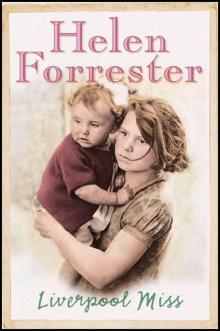 Liverpool Miss
Liverpool Miss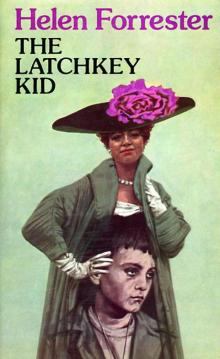 The Latchkey Kid
The Latchkey Kid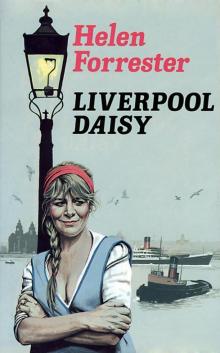 Liverpool Daisy
Liverpool Daisy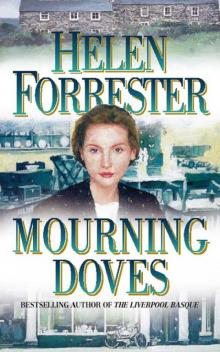 Mourning Doves
Mourning Doves